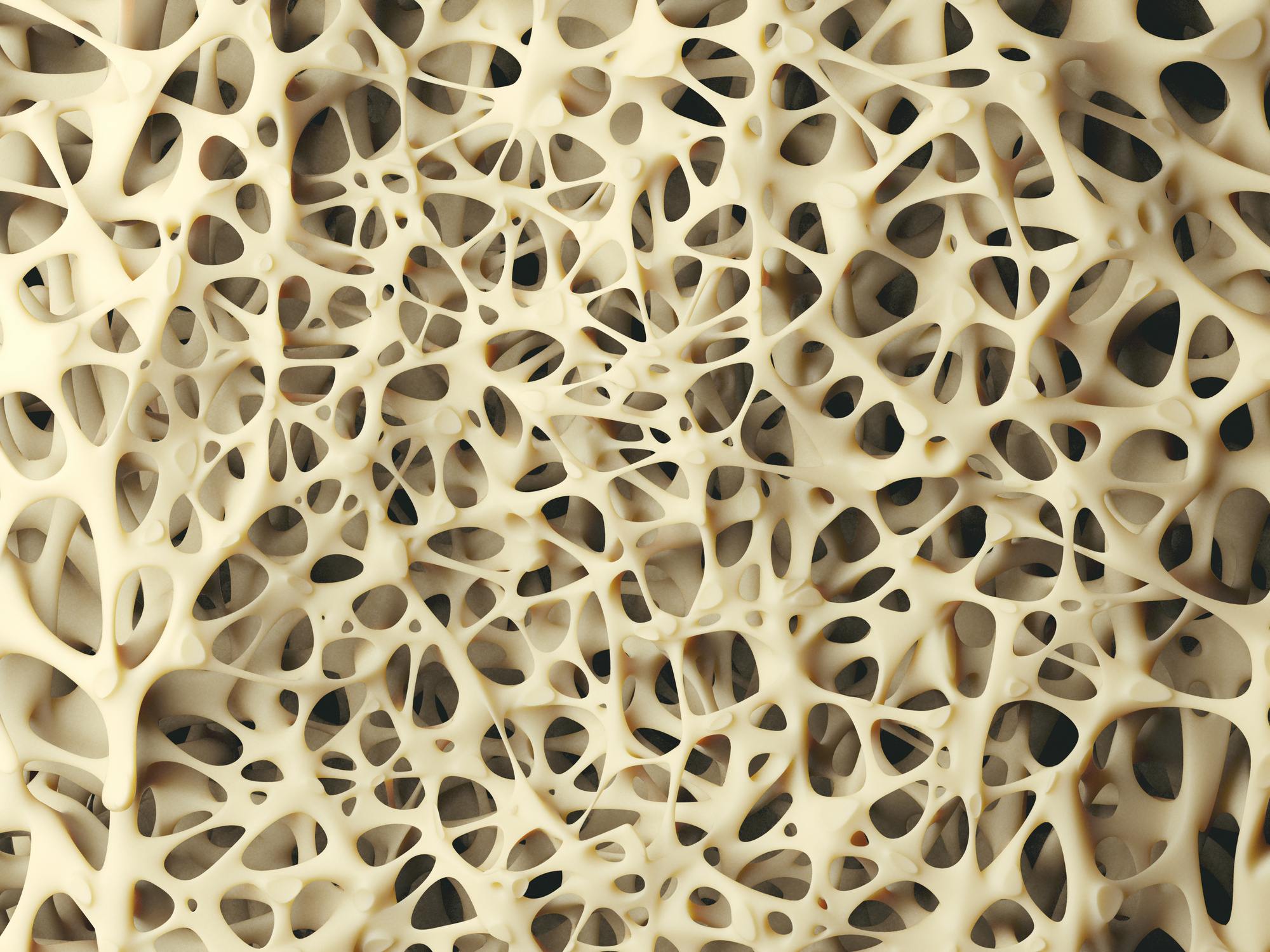Get Easy Health Digest™ in your inbox and don’t miss a thing when you subscribe today. Plus, get the free bonus report, Mother Nature’s Tips, Tricks and Remedies for Cholesterol, Blood Pressure & Blood Sugar as my way of saying welcome to the community!
Bone loss: A significant risk factor for dementia

One of the most shocking things about dementia may be how many factors play a role in your risk of developing the disease.
Health issues ranging from vision loss and depression to lifestyle factors like drinking too much (or too little alcohol and even your relationship status can impact your risks.
And there’s one more you can add to that list — weak bones.
That’s right…
If your doctor has warned you that you may be experiencing bone loss, osteoporosis and increased fracture risk may not be your only concerns…
The egg, not the chicken
Bone loss and dementia are both issues we’re all more likely to experience with age.
Yet, little has been known about whether there was a connection or not — and if there was, which came first?
So, researchers in the Netherlands set out to follow over 3,600 participants, with an average age of 72, for approximately 11 years — and find out.
While none of the people who volunteered for the study had dementia at the start, by the end of the period, 19 percent were affected.
And sure enough, those who had weaker bones to begin with were far more likely to end up in that unlucky 19.
After adjusting for all other factors like age, sex, medication use and family history, the results showed that people with the lowest total body bone density were a startling 42 percent more likely to develop dementia within 10 years than people with stronger bones.
And as for that question of which came first — the chicken or the egg…
Here’s what study author Mohammad Arfan Ikram, MD, Ph.D. had to say: “Low bone density and dementia are two conditions that commonly affect older people simultaneously, especially as bone loss often increases due to physical inactivity and poor nutrition during dementia. However, little is known about bone loss that occurs in the period leading up to dementia.”
“Our study found that bone loss indeed already occurs before dementia and thus is linked to a higher risk of dementia.”
So, it looks like bone loss is the egg, not the chicken.
To healthy bones
The good news is that much is already known about how to support healthy bones — and as it turns out, a couple of those same factors can pull double duty for your brain too…
Take regular exercise, for example, especially weight bearing. That doesn’t mean you have to hit the gym. Your body is a weight, and walking is one of the best exercises to kick bone loss to the curb. And several years ago, researchers proved that walking 4000 steps a day actually changed the size of the brains in study subjects aged 60 and over.
But probably best known is the dynamic duo calcium and vitamin D for bone health. Calcium is a building block for strong bones, but without adequate vitamin D, the body only absorbs about 10 to 15 percent of dietary calcium. Not getting enough vitamin D is a problem for your brain too…
One of the most dramatic findings came from a 2014 University of Exeter study that included 1,658 older adults. That study found that those with very low vitamin D levels (lower than 25 nmol/L) had a 122 percent higher risk of developing dementia than those with higher levels. They also found that vitamin D deficiency of any kind (severe or moderate) was tied to a 51 percent higher risk of developing dementia.
Although calcium is easy enough to come by in your diet, vitamin D is not so much. Sure, you can find it in fortified foods like cereal. But that form of vitamin D is not as easily absorbed and used by the body. Vitamin D3 is the most bioavailable form of vitamin D, known as cholecalciferol.
A therapeutic dose of 5000 IU helps me keep my levels where they can do me the most good (far from the 42 percent of Americans who are deficient), so I have fewer worries with every passing birthday and bone density test.
Editor’s note: Did you know that when you take your body from acid to alkaline you can boost your energy, lose weight, soothe digestion, avoid illness and achieve wellness? Click here to discover The Alkaline Secret to Ultimate Vitality and revive your life today!
Sources:
Is bone health linked to brain health? – ScienceDaily
Calcium and Vitamin D: Important at Every Age NIH
Vitamin D and dementia: A very close tie – Medscape












